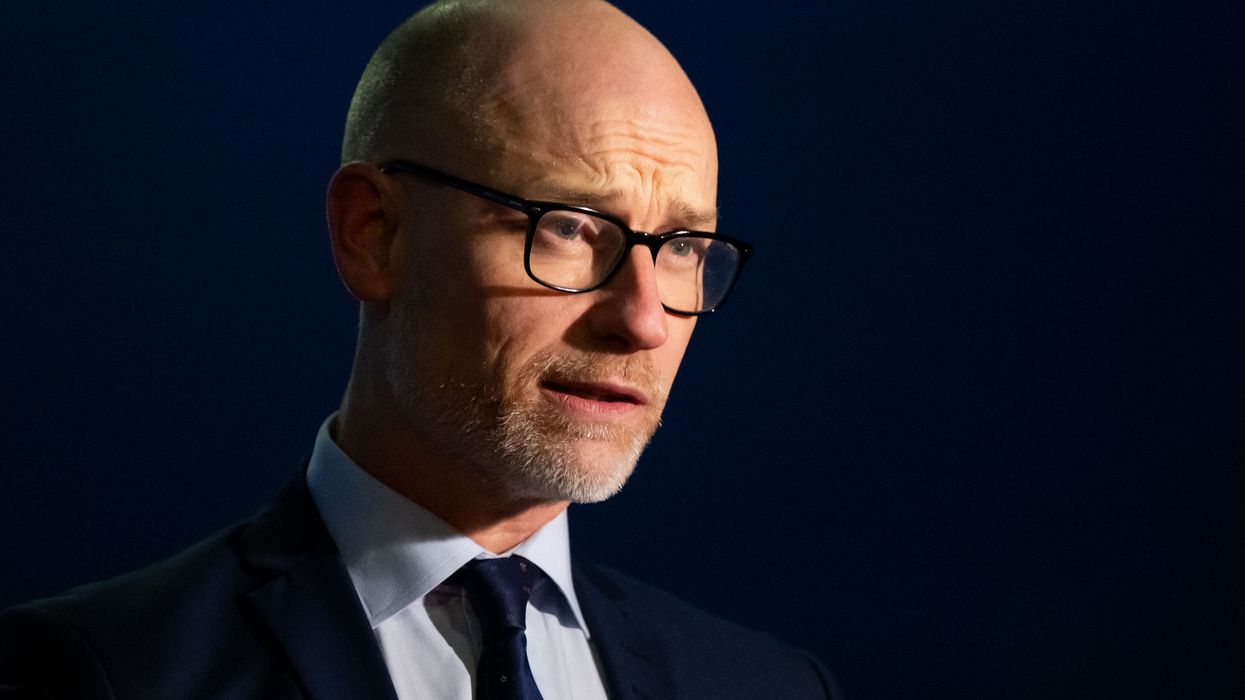Government officials are set to investigate whether counsellors and therapists are able to establish themselves too easily in the UK, amid a sharp increase in mental health diagnoses. Stephen Kinnock, the care minister, voiced concerns that a lack of regulation in the private sector might be contributing to an “exponential” rise in diagnoses of mental health conditions.
Speaking at the Pulse Live conference, Kinnock highlighted the ease with which individuals could set themselves up as therapists, expressing concern that the process requires minimal oversight or extensive training. He pointed to countries such as Sweden and the Netherlands, where counsellors are required to undergo six years of training before practising, and suggested that a similar approach may be needed in the UK.
“I was struck by how easy it is to set yourself up as a counsellor or therapist and start charging for it within the next day,” said Kinnock. “In other countries, you have to have years of training before you can set yourself up on that basis.”
Unregulated private sector raises concerns
Kinnock also expressed his worry that diagnoses given by some independent practitioners in the private sector may not be based on sound clinical expertise. “I am very worried that there are diagnoses being given out by the private independent sector which are not rooted in clinical expertise, and that is an issue I have commissioned my officials to look at,” he said.
The care minister’s remarks come in response to growing concerns within the government about the increasing rate of mental health diagnoses in the UK. Wes Streeting, the Health Secretary, previously warned of a potential issue with the “overdiagnosis” of mental health conditions, leading to increased strain on public services.
Mental health crisis impacting economy
During his speech at the conference, Kinnock emphasised the broader impact of mental health issues on the UK’s economy. “One of the big stories of this week has been the number of people who are economically inactive because they’ve got issues with their mental health and can’t work as a result,” he said. “This is an issue that’s really holding our country back. It’s really bad for the people who are suffering; it’s really bad for the economy; it’s putting massive pressure on our health and care system.”

He added that the rising demand for mental health services has been driven in part by diagnoses that are not based on clinical expertise. “Demand just continues to go through the roof, partly because people are being diagnosed in a way that isn’t rooted in clinical expertise,” said Kinnock. “No matter what you do, you’re not ever able to get on top of the situation.”
The government has acknowledged that addressing the mental health crisis will require both investment and reform. Kinnock said that while more funding is essential, reforms are needed to help manage the increasing demand for services. “We need the investment that’s going in, yes, but we also need reform so that we can start to deal with the demand curve that we’re seeing, which has been exponential in recent years,” he said.
Government plans for mental health services
In response to the mental health crisis, the government has announced plans to recruit 8,500 more mental health specialists and to place mental health experts in schools across the country. These measures are part of a broader strategy aimed at improving access to mental health services and addressing the growing demand.
In addition to expanding the workforce, the government is committed to renegotiating the national contract with GPs in an effort to improve mental health services and reduce bureaucratic burdens on general practitioners. Kinnock expressed optimism about the ongoing negotiations with the British Medical Association’s General Practice Committee for England (GPCE), noting that contract changes have already been agreed for 2025/26.
“I obviously hope that there won’t be any further collective action,” said Kinnock, referring to potential industrial action by GPs. “We’ve had a very constructive and collaborative engagement with the GPCE, and I think we have fixed the foundations of that relationship. What we have to do now is crack on and move forward into an ambitious and bold reform agenda.”
GPs as the “bedrock of the NHS”
Kinnock reaffirmed the government’s commitment to supporting GPs, describing them as the “bedrock of the NHS” and a key part of the 10-Year Health Plan. He stressed the importance of freeing up GPs to focus on patient care, rather than being bogged down by administrative tasks. “That means cutting bureaucracy; that means enabling the shift from analogue to digital; that means improving continuity of care and bringing back the family doctor,” he said.
The government’s efforts to address mental health challenges coincide with growing discontent among GPs, who are reportedly considering escalating industrial action. A “special” Local Medical Committee conference was held in London to discuss the issue, though the agenda has not been made publicly available. The British Medical Association’s GPCE, which represents GPs in England, is the sole negotiating body for the GP contract.
Dr Katie Bramall-Stainer, chairman of the BMA’s GPCE, has called on the government to demonstrate its commitment to general practice by allocating adequate funding in the upcoming comprehensive spending review. She said: “We need to see proof of the government’s commitment to general practice in this spring’s comprehensive spending review from the Treasury, and in the DHSC’s 10-Year Plan for the NHS.”
As the mental health crisis continues to grow, the government faces increasing pressure to reform services and address concerns about the regulation of private therapists. With more people than ever seeking help for mental health issues, the need for a balanced approach, combining investment, reform, and proper regulation, is more critical than ever.





